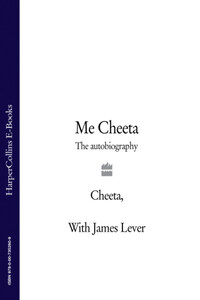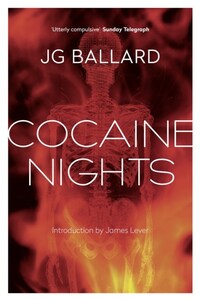Dearest humans,
So, it’s a perfect day in Palm Springs, California, and here I am—actor, artist, African, American, ape and now author—flat out on the lounger by the pool, looking back over this autobiography of mine. Flipping through it more than reading it, to be honest: the whole Lifetime Achievement idea of an autobiography makes me a little nervous. The—what’s the word?—the valedictory aspect to it. I’m in fine health, I’m producing some of the best paintings of my career, I’m in no obvious danger of being killed, but I’ve seen it happen too many times to too many of my fellow greats. The book comes out and, next thing you know, they’ve disappeared.
Or, as Johnny once told me, ‘Soon as they start calling you an Immortal, you start worrying about dying.’
I think Sports Illustrated had recently made Johnny one of their ‘Fifty Greatest Immortal Sportspersons’ or something like that. This was an evening in the early eighties at his lovely home overlooking the Pacific in Playa Mimosa, Acapulco. He had health issues at the time and people couldn’t stop giving him Lifetime Achievement awards. They came at him like diagnoses. And even Johnny Weissmuller, who was so unfailingly upbeat and so reliably delighted by trophies, who’d been inducted into so many Halls of Fame and festooned with so many honours over the years, was finding it difficult to raise any joy about his new Immortal status. After all, it wasn’t like it was any kind of a guarantee. He and I both knew for a fact that several ‘Immortals’ we’d once palled around with were now dead. ‘Past a certain point in your life it’s all awards,’ he added, ‘for things you can’t remember doing.’
Well, over the last few years I’ve started to notice similar, vaguely ominous, signs around me. I’m not a superstitious creature but, on the Palm Canyon Drive ‘Walk of Stars’, just round the corner from here, they’ve already got a star with my name on it, between two guys I’ve never heard of. There’s a campaign bubbling away to get me a proper star on the real Walk of Fame—at 6541 Hollywood Boulevard, no doubt, between Johnny and Maureen O’Sullivan. The ideal jungle family together again, and rid of the Boy at last. So, any day now I expect the arrival of a slab of wet concrete and a delegation from Sid Grauman’s Chinese Theater asking for my handprints, though they’ll have to live without a signature. (Roy Rogers, I’m pretty sure, signed Trigger’s name for him beside the pair of hoofprints that Trigs left, and I think it was the same arrangement with Gene Autry and Champion, the other Wonder Horse. But in truth, if Grauman’s do decide they want my handprints, I’d be pretty surprised if Johnny was there to do the same for me. Anyway. Most of the time I don’t even think about it.)
So it’s my hope, dear reader, that you’ll think of this book as more of a hello than a goodbye. If anything, my real worry is that it’s somewhat premature.
My original title was My Story So Far, as a sort of charm against the idea that it represented a final statement. But unfortunately Donny Osmond had already used that, along with a whole bushel of athletes and childhood-abuse survivors. Then I decided that My Life So Far would do equally well, but Jane Fonda had bagged it. And, let’s face it, in the context of Jane’s life, the title sounds like a threat. So I figured that, what the hell, I’d plump for My Life. Simple and classic and modest—and, I came to realize, already taken dozens of times. As was My Story. Also My Autobiography, to my irritation, by Charlie Chaplin, so that was out. It’s bad enough that people mistakenly think any of my routines owe anything to the bewilderingly overrated Chaplin, shallowest of the great silent clowns. (Motion Picture Herald, March 1942: ‘The chimp Cheta [sic] is well handled and provides pic with some decent laughs via antics that almost make you think of Chaplin.’) Furthermore, The Story of My Life also turned out to be gone. Similarly My Life Story and In My Life. And My Lives. And My Lives and Loves. Likewise, as I soon found when tentatively attempting to branch out, My Life in Film, A Life in Film, My Life in Movies, A Life in Movies, My Life in Art and My Life in Pictures (unbelievably that goddamned Chaplin had snaffled that one too).
Despairing somewhat, I thought it might be terrifically daring to begin something with ‘American…’ or ‘Hollywood…’ before discovering that everything begins ‘American…’ or ‘Hollywood…’. Cheeta Speaks came to me as a revelation while I was dozing in this very chair, as did the realization that another great clown, Harpo Marx, had used it up.









